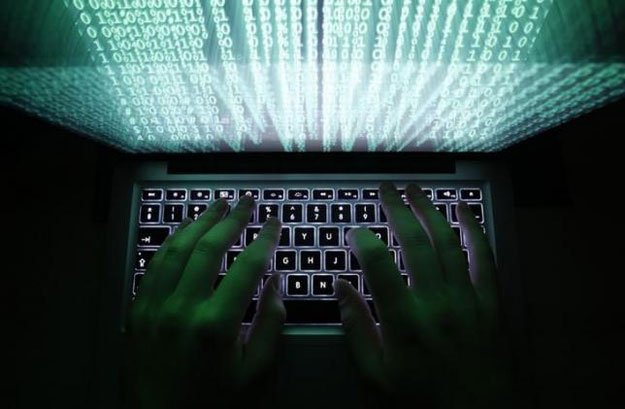
Hacking activity against corporations in the United States and other countries surged last year as digital thieves took advantage of security weakened by pandemic work-from-home policies, said researchers. As remote working is becoming a norm, individuals are even more susceptible to cyber-attacks.
By following these simple steps you can protect your data and devices:
Secure your wireless network at your home or business
Keeping a password-free Wi-Fi connection seems quite convenient especially when guests keep asking for your password, however, the drawback to this is that anyone could join your Wi-Fi network and compromise your network, devices, and data by accessing your drives or slowing down your network.
Secure your wireless network with a password to prevent unauthorise access to hack your network.
"If you have a Wi-Fi network for your workplace, make sure it is secure, encrypted, and hidden. To hide your Wi-Fi network, set up your wireless access point or router so it does not broadcast the network name, known as the Service Set Identifier (SSID). Password protect access to the router," says FCC.governemnt in an article offering data protection tips for small businesses.
Encrypt your data
Data encryption protects digital data privacy as it is stored on computer systems and transmitted using the internet or other computer networks.
Encrypted data, also known as ciphertext, appears scrambled or unreadable to a person or entity accessing without permission. Users can access data by using the correct encryption key hence your data is secure, reports Digital Guardian.
Backup your data
One of the most important tips to protect your files is to back up your data which means you create duplicate copies of your data so that if a device is lost, hacked, or stolen you don’t lose important information.
"According to Nationwide, 68% of small businesses don’t have a disaster recovery plan. The problem with this is the longer it takes you to restore your data, the more money you’ll lose. Gartner found that this downtime can cost companies as much as $300,000 an hour," says US Chamber of Commerce and insurance company Nationwide.
Cybercrime costs to top $1tr this year: researchers
Install operating system updates
Not installing operating system updates puts your computer at risk of malware attacks and hacking. These updates carry security patches that prevent your computer from viruses and recently discovered threats.
"No matter which operating system you use, it's important that you update it regularly. Windows operating systems are typically updated at least monthly, typically on so-called 'Patch Tuesday.' Other operating systems may not be updated quite as frequently or on a regular schedule. It's best to set your operating system to update automatically. The method for doing so will vary depending upon your particular operating system," says PrivacyRights.org.
Use a firewall
Firewalls help protect against outside cyber attackers by securing your computer or network from malicious or unnecessary network traffic. "Firewalls assist in blocking dangerous programs, viruses, or spyware before they infiltrate your system. Various software companies offer firewall protection, but hardware-based firewalls, like those frequently built into network routers, provide a better level of security," says Geek Squad.
Use "passphrases" rather than "passwords."
Rather than using passwords, it’s recommended that you use passphrases -which is not a proper sentence and contains space and a combination of letters, numbers, and symbols that is easier to remember.
Operating systems and online applications are updating from only using passwords to supporting the use of pass-phrases since it’s easier to remember and difficult for cyber attackers to hack.
An example of a passphrase would be “I love ice-cream!”
Hackers used SolarWinds' dominance against it in sprawling spy campaign
When you're done using your laptop, turn power off
When you're finished using your computer or laptop, power it off to avoid malicious attacks.
"Leaving your computer connected to the Internet when it’s not in use gives scammers 24/7 access to install malware and commit cybercrimes. To be safe, turn off your computer when it’s not in use," suggests CSID, a division of Experian.
Anti-malware protection is a must
It is absolutely necessary for anyone using a computing device to use anti-malware software in order to safeguards the computer from malware such as spyware, adware, and worms. An anti-malware program is one of the best tools to keep the computer and personal information protected.
Automate your software updates.
In order to ensure that you're downloading the latest security updates from operating systems and other software, turn on automatic updates.
"Many software programs will automatically connect and update to defend against known risks. Turn on automatic updates if that’s an available option," suggests StaySafeOnline.org.







1731838555-0/BeFunk_§_]__-(5)1731838555-0.jpg)









COMMENTS
Comments are moderated and generally will be posted if they are on-topic and not abusive.
For more information, please see our Comments FAQ